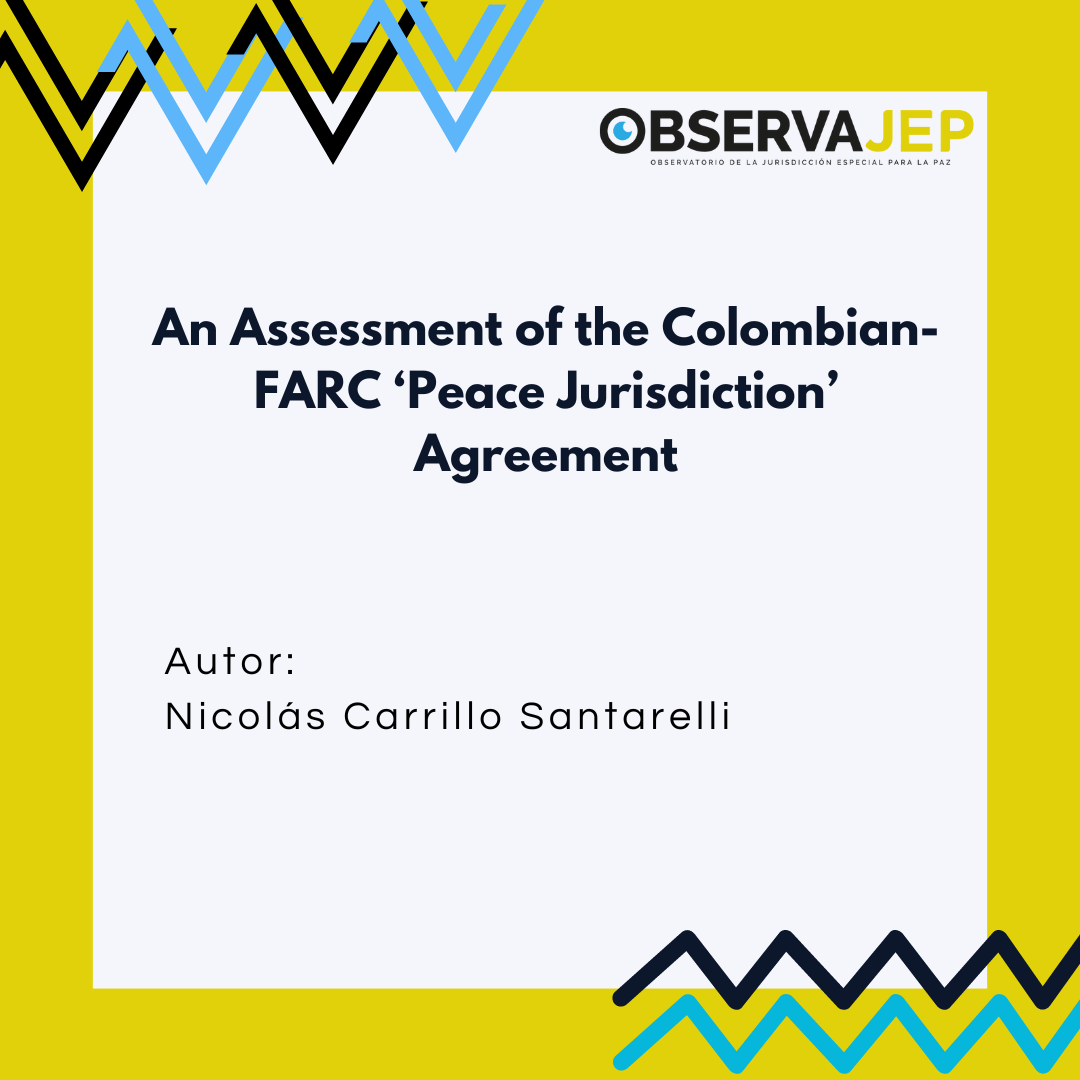PUBLICATIONS
Library
In this section you will find a selection of academic publications related to the SJP and the Peace Agreement between the FARC-EP and the Colombian Government.
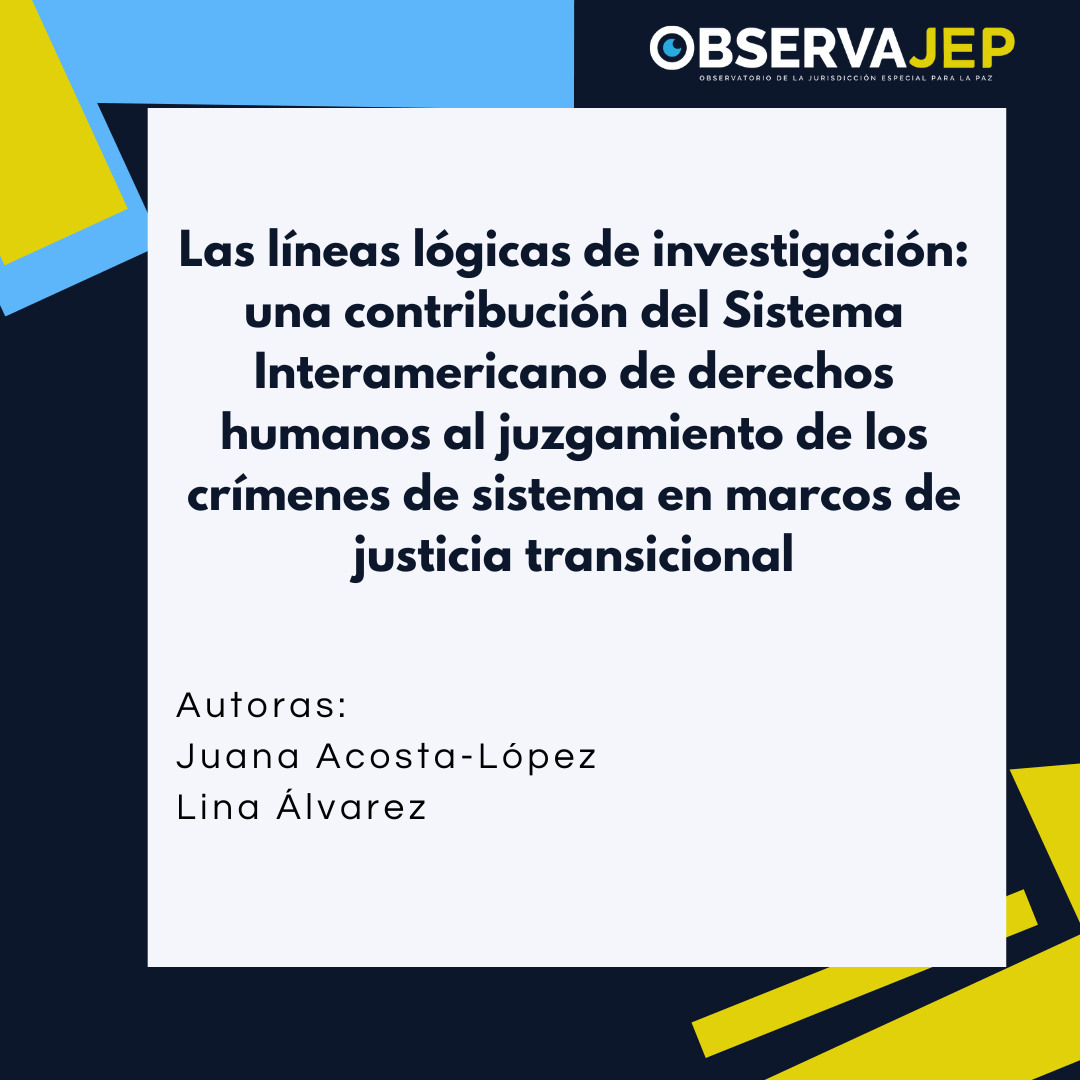
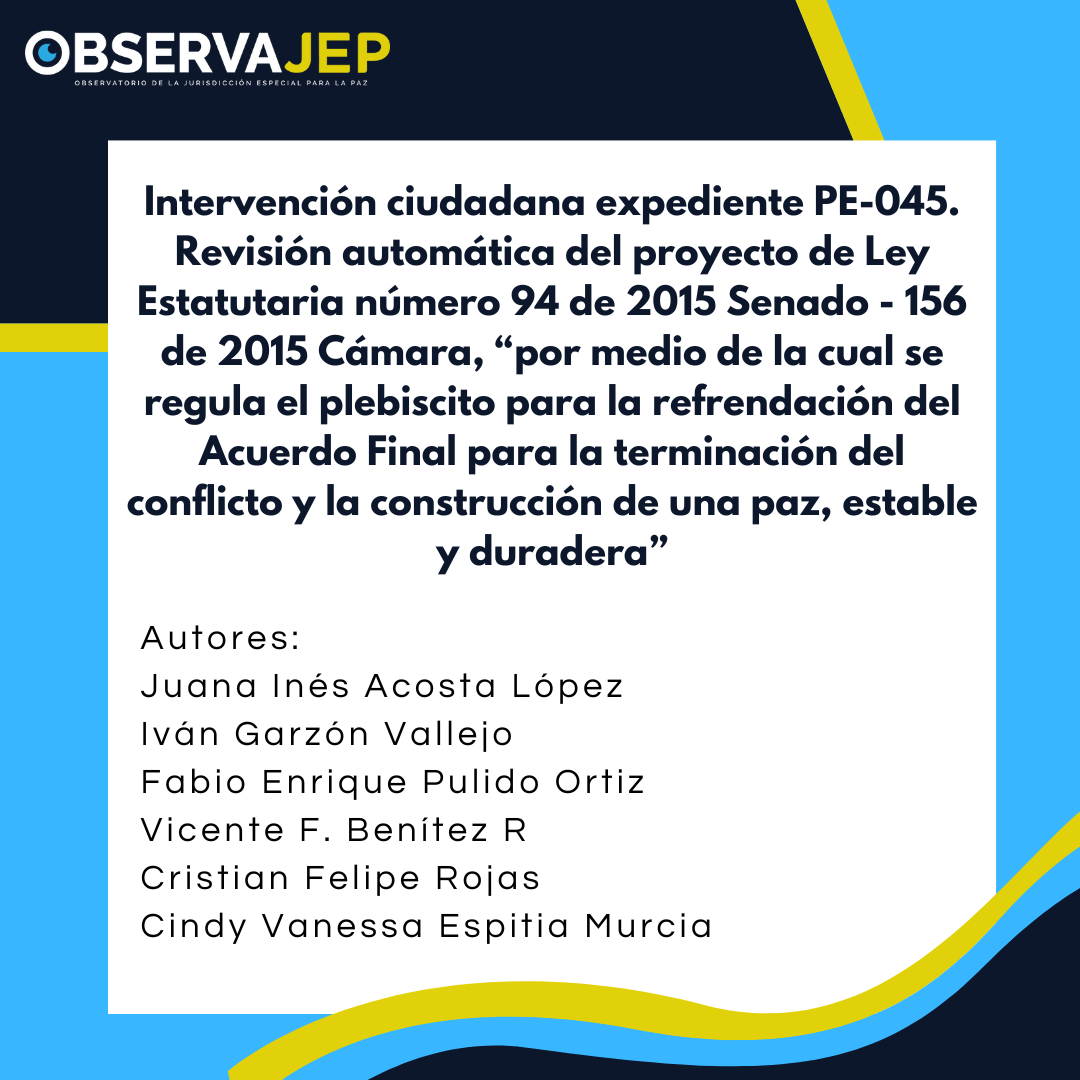
Statement before the Congress of the Republic against the draft statutory law on the plebiscite on the Peace Agreement
Juana Inés Acosta López, Iván Garzón Vallejo, Fabio Enrique Pulido Ortiz, Vicente F. Benítez R., Cristian Felipe Rojas & Cindy Vanessa Espitia Murcia
The text represents a citizen intervention before the Congress of the Republic on the plebiscite on the Peace Agreement.
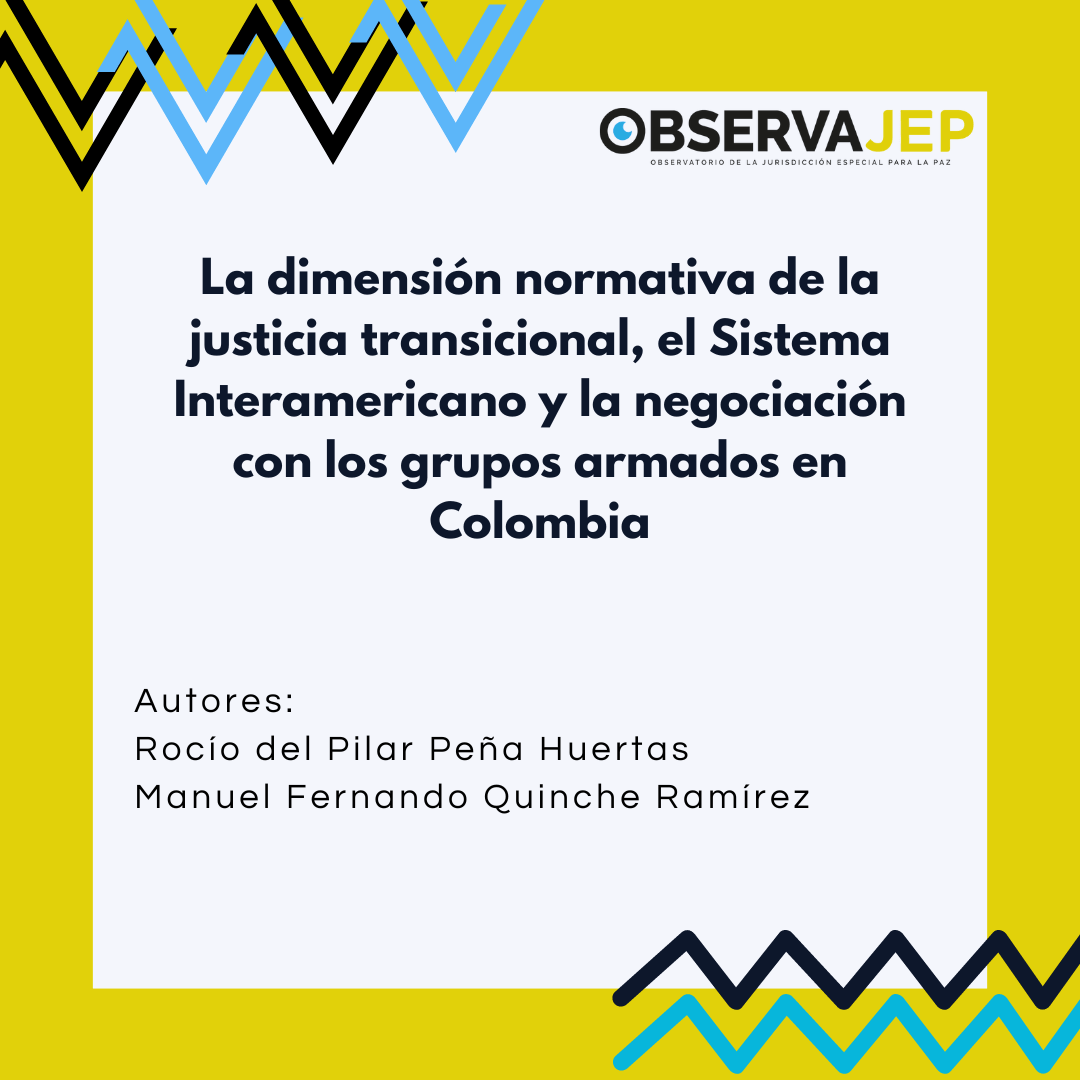

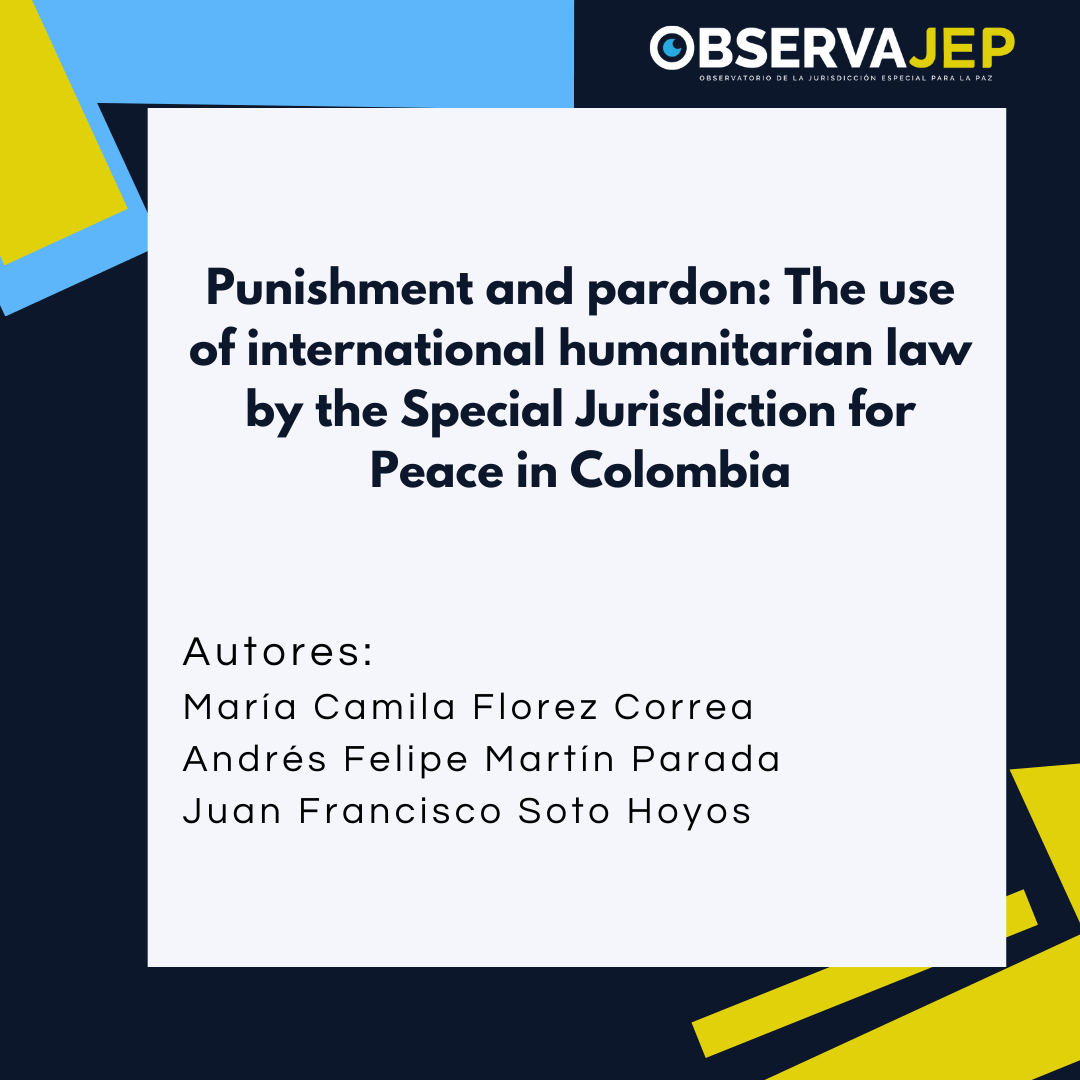


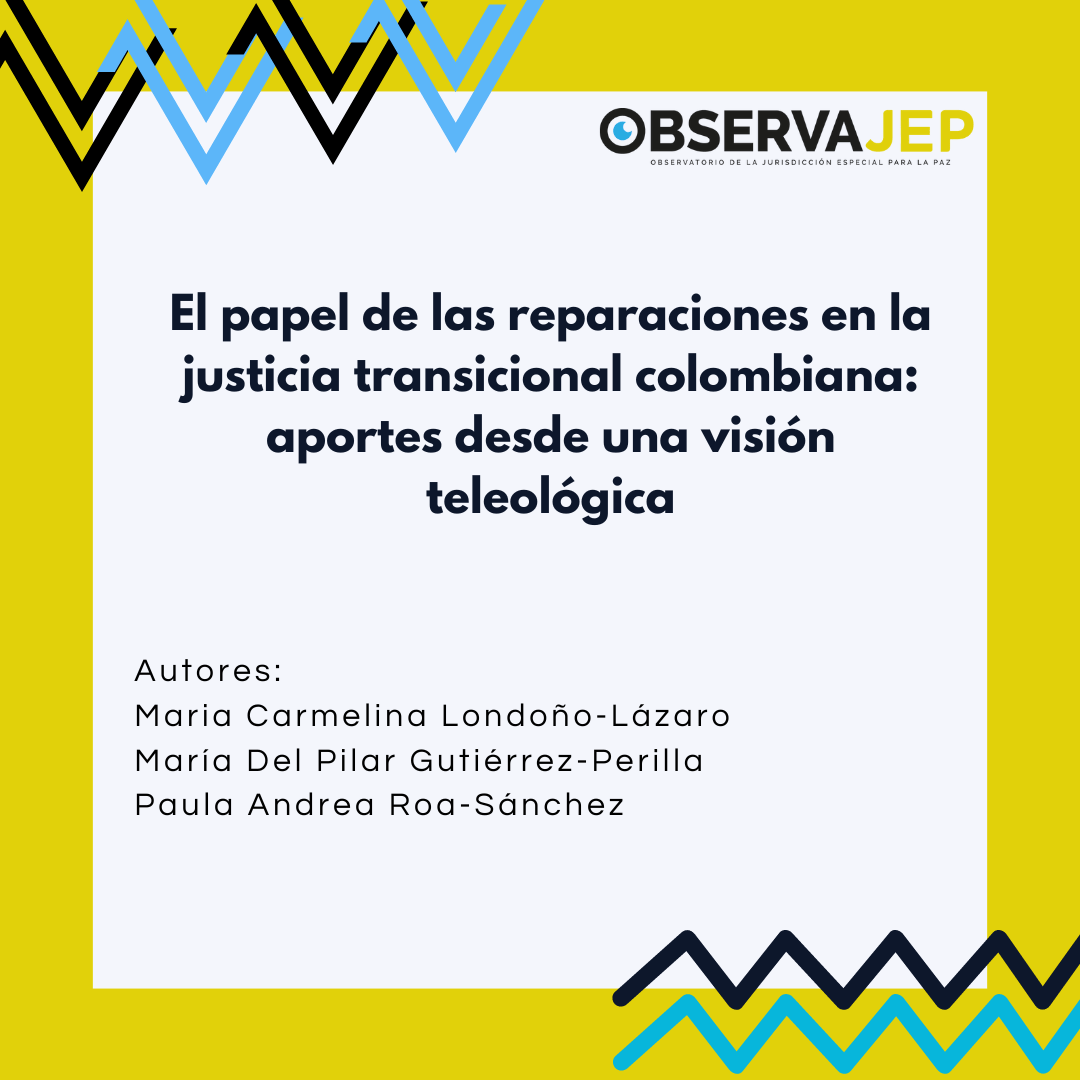
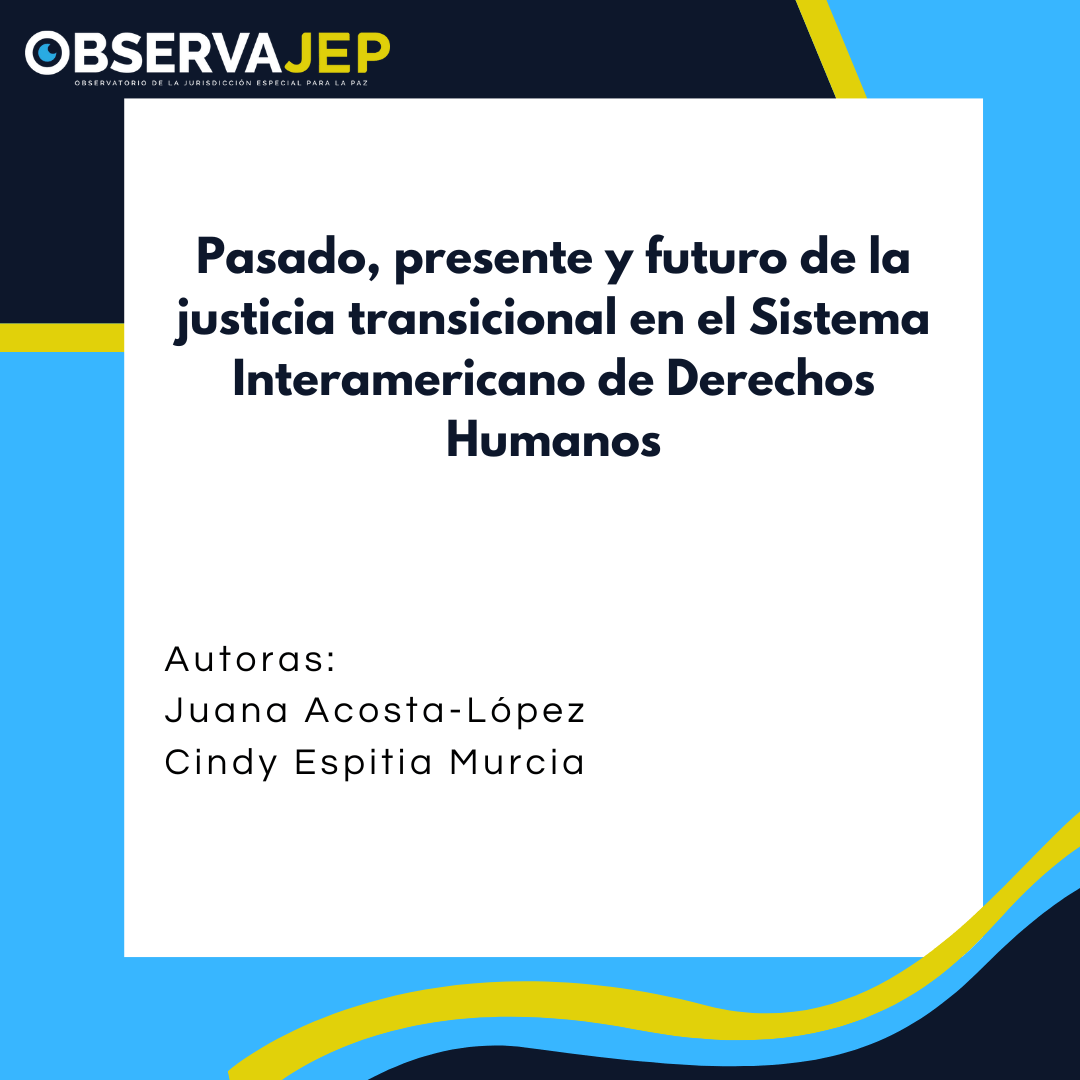


Macrocriminality and criminal function in a transitional logic: possible contributions of criminal law to guarantees of non-repetition
Alejandro Aponte-Cardona
This paper, in a transitional logic and in the context of the Colombian transitional model, explores the meaning of punishment and the implementation of the justice model agreed upon in the Peace Accord.

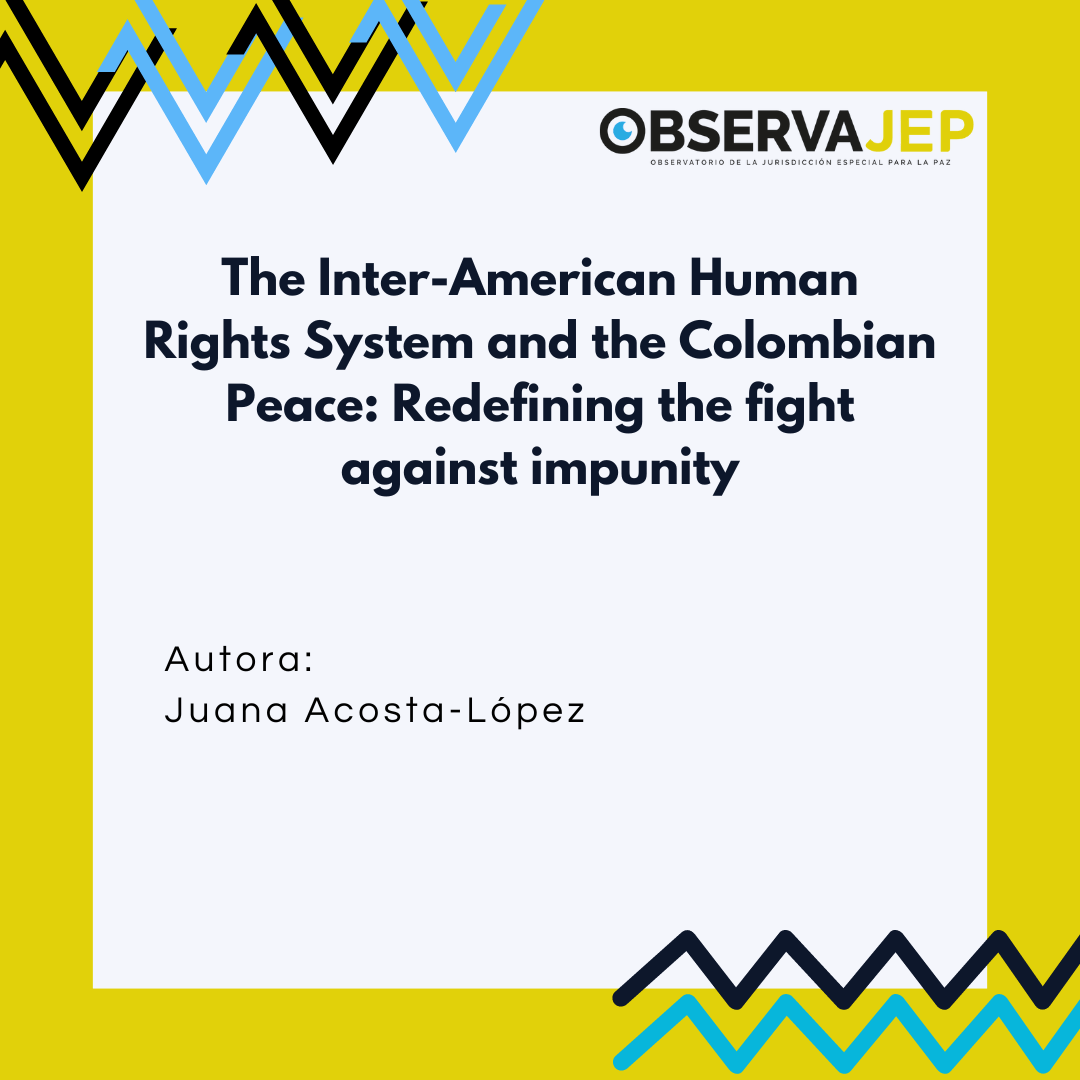

Substitution trial: the political participation of ex-combatants as a development of the participatory democratic framework. Book chapter in: "Justicia de Transición y Constitución II: Análisis de la Sentencia C-577 de 2014 de la Corte Constitucional"
Juana Acosta-López & María Carmelina Londoño-Lázaro
The text analyzes the judgment of substitution made by the Constitutional Court in sentence C-577 of 2014, concluding that the article does not replace the constitution, but rather develops essential elements of it.








